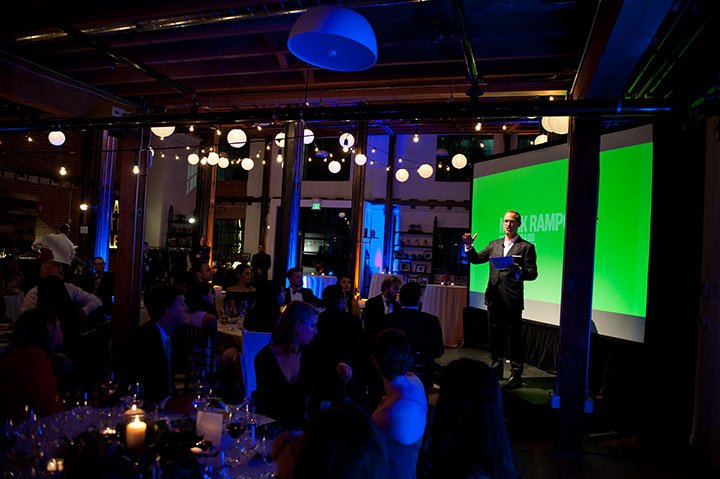Want to make a bigger impact in ending modern day slavery? You can also partner with us or invest in companies that give back to Not For Sale. Get more involved here.
Give to change the course of a life affected by modern slavery.
Keynote Speech Given at Not For Sale Annual Gala,
San Francisco
By Mark Rampolla – Founder ZICO coconut water, managing partner Powerplant Ventures, author High Hanging Fruit.
October 15, 2016
Thank you, Dave. My wife Maura and I are honored to be here and I appreciate the opportunity to talk about something that matters very much to both of us and I know most of you as well.
I used to think that being a good business person and doing good were polar opposites. You were either Gordon Gekko, or you were Gandhi.
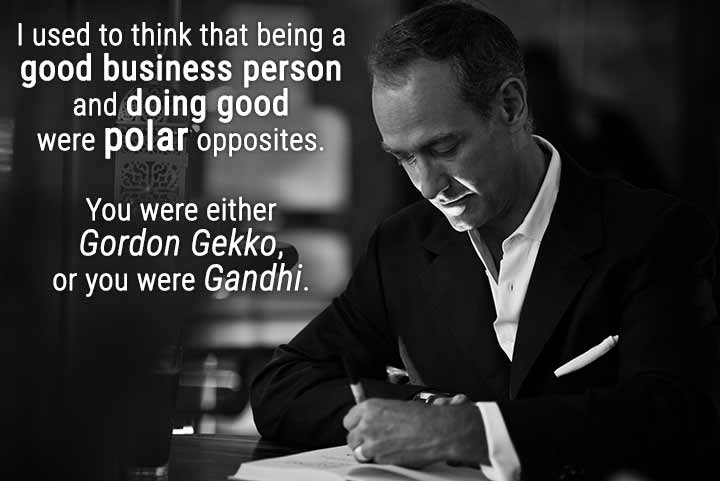
I lived that conflict personally for many years. I was raised in a family more concerned with social justice than returns on Wall Street, joined the Peace Corp and studied Environmental Management back when the idea of climate change was so new it hardly had any deniers. But I also have an MBA and loved working for a Fortune 50 company. Whichever side I picked, I felt like I was cheating on the other.
Luckily, now I know that it’s possible to do both and to be both.
That perhaps the best way to do good is by doing good business AND that perhaps the best way to do well in business is by doing good.
That first became clear to me one hot summer morning at the beach in El Salvador where we living at the time. Maura was pregnant with our second daughter Lexi and had terrible morning sickness. The only thing she could stomach was the fresh water from the young coconuts growing everywhere around us. I had a well paying corporate job at the time, but had begun to search for some sort of higher meaning in my life. It turned out the answer was right over our heads – coconut water.
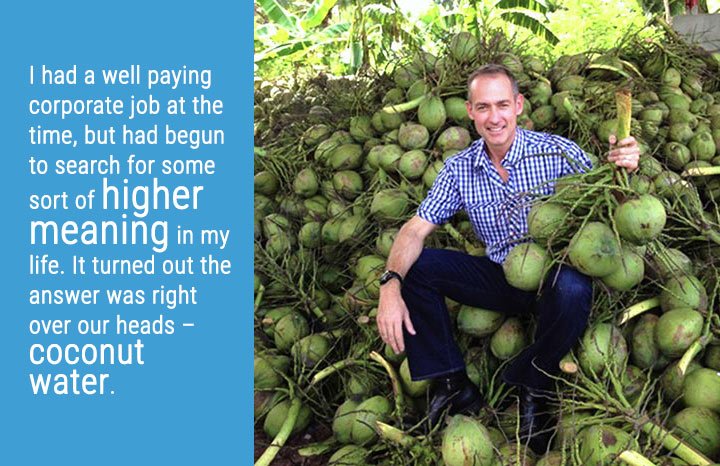
In less than a decade, ZICO became one of the leaders of a new, healthy, sustainable, $8 Billion beverage category. It has brought hundreds of millions of dollars to struggling farmers in developing countries while also helping millions of consumers kick their sugary, unhealthy drinking habits. In 2013, we sold ZICO to Coca-Cola, believing that was the best way to scale the impact we hoped to make and that perhaps in some small way might change that beverage behemoth.
We had somehow figured out how to build a successful business while also making a significant social impact.
Now that I’ve gone to the “dark side” and become an investor myself, I realized that we’re far from alone.
There are so many businesses having even greater success while making massive positive social impact. In fact, today this is virtually the new norm for start-ups. Many entrepreneurs, investors, NGOs and academics have reached the same conclusion we have: There is an opportunity, in fact, an imperative to redefine what it means to be successful in business and in life.
One of the most seminal business minds of the 20th century, Peter Drucker, said that “the purpose of a business is not to make money. It is to create a customer. Profits are the result.”
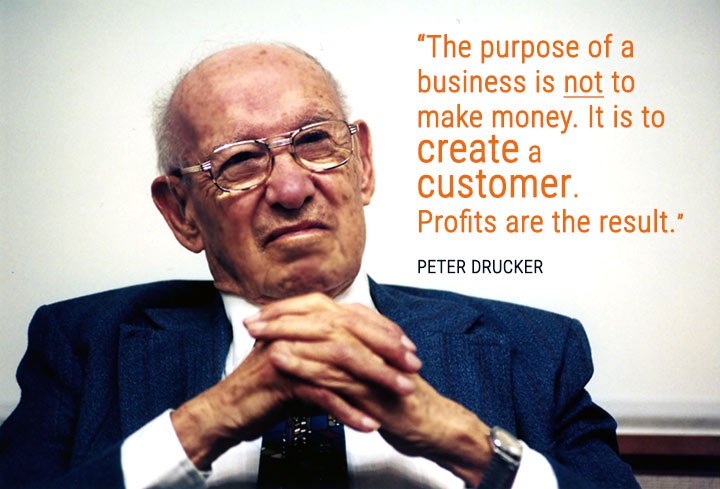
Today’s entrepreneurs are going beyond that. For them, the purpose of a business is to solve a problem: deep, important problems that affect people’s lives, our planet and the other creatures with whom we share it. And the amazing thing they’ve figured out is that you can earn a profit doing that: sometimes a massive profit.
These businesses are not led by mercenaries who focus solely on profit, consequences be damned – nor are they led by missionaries who focus solely on charity.
These impact entrepreneurs are visionaries, representing a fusion of the two, and demonstrate a fundamental shift away from building companies centered around profit maximization, and instead put one or more of three things at the core of their businesses:
- Humans and their wellbeing
- the welfare of animals
- The health and sustainability of our environment.
Now let’s get practical. That might sound interesting but is it possible and what does it look like in practice? One of my favorite examples of that is REBBL and it’s birth from Not For Sale .
Everyone here knows Dave Batstone and that he was enjoying his retirement from the high-flying life of a silicon valley VC when he started to hear shocking stories about the plight of trafficked and enslaved young women and men around the world and in his own backyard.
In response, he founded Not For Sale to help eliminate this modern day scourge. He decided to take a different approach from what a traditional nonprofit might do. Instead of relying on donations and grants, he decided to launch businesses that would create long-term, sustainable funding for Nor For Sale.
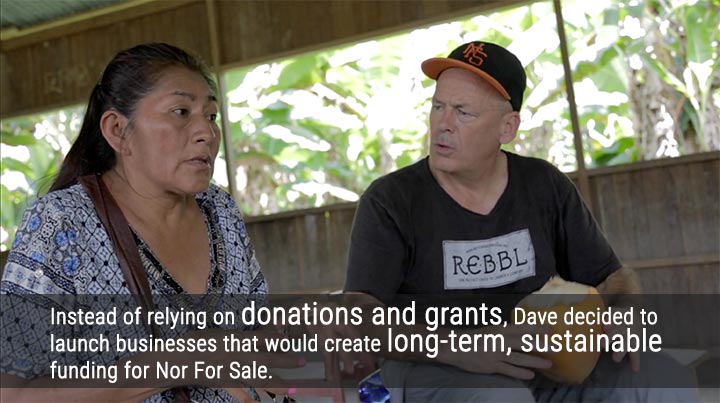
He found like-minded supporters, but they weren’t donors, they were investors: some of whom are in this room. Mike Keriakos. Kuldeep Malkani and Duke Mackenzie.
Together they realized that many of the rural communities experiencing the worst cases of human trafficking were also the sources of amazing herbs that had tremendous healing capabilities and perhaps big market potential. They came up with the idea to create a beverage that used these herbs, building a market-based solution that would fund the prevention of human trafficking at its source.
They then connected with beverage industry veteran Palo Hawken. Palo had a fantastic history in the industry (including developing ZICO chocolate for us) and heightened sense of social awareness and under his direction, the REBBL brand was born.
Now, I’m a sensitive guy in touch with my emotions (right Maura?). I’ve witnessed poverty first hand and as a father of two daughters can only imagine the pain wrought by trafficking on so many families. So when I first heard about this idea it tugged at my heart strings.
But, I also run a VC fund seeking a fair return. And I lived through the insanely competitive beverage industry, with its 97% failure rate, so I was not convinced this business would succeed and therefore doubted it could make any real impact on trafficking.
It wasn’t long before they started proving me wrong. They gained solid traction with consumers and decent velocity at Whole Foods Market and other retailers, with their first tea products. But I’ll never forget when I first tasted what Palo called the Elixir line based in coconut milk. They were incredible and I thought they had something special on their hands. But when Sheryl O’Loughlin, former CEO of Clif Bar and co-founder of Plum joined REBBL as CEO, I knew they now possibly had the most important piece of the puzzle: the ability to execute.
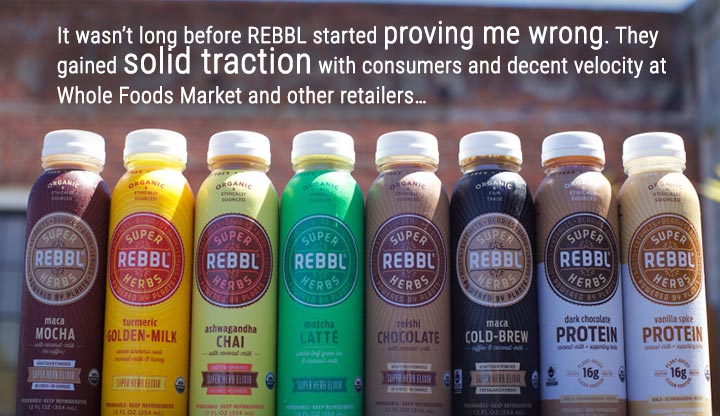
Among the many things I love about REBBL, it’s the problem, human trafficking, that launched a company. Not the other way around. And in this I saw an opportunity to further test this hypothesis:
Can you build a business that is at its core about positive impact, first? A company that viewed making money as a result, not the objective?
But one that does so with a compelling value proposition, great execution and at scale. So we at Powerplant Ventures put our money to the test as well, investing $4MM into REBBL, our largest investment to date.
REBBL has a long and tough road ahead, and who knows where this will go. But let me tell you what I think is going to happen. I think REBBL is going to become a $100MM brand with a wide, passionate base of consumers. I think we’ll be approached by acquirers such as Coca-Cola, but we’ll also consider staying independent, perhaps even entertain going public.
But the real win will be that along the way we will have created perhaps 1,000 direct and indirect dignified jobs paying livable wages and delivered millions of dollars to Not for Sale with which they can bring or keep tens or even hundreds of thousands of people out of trafficking.
I also believe we’ll help spur the development of many social impact businesses as our team members leave to launch new ones, people read about our story, investors seek to repeat our success and NGOs partner with other entrepreneurs to create similar or even better models. At least that’s our intention and intentions do matter.
What REBBL reminds me is, we all play a role. Whether you’re an investor, a not-for-profit, an entrepreneur, a consumer, a corporation, an academic, an employee — you can play a role in defining the next generation of not just social impact businesses, but business in general.
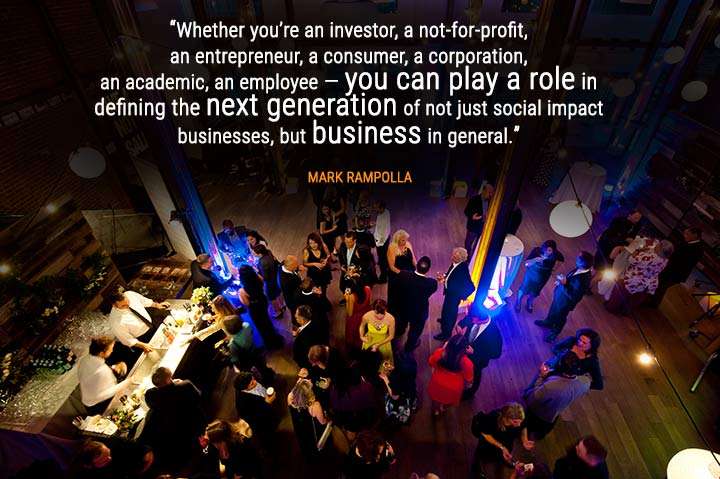
Here’s how for four groups:
The investors among us — We need to seek out these sort of opportunities. Make it known you are looking as much at impact as return. Ask entrepreneurs what impact they plan to make. Be as tough on that as you are on the strategy and the numbers. I’m not asking you to compromise on your selection criteria, I’m asking you to be even more selective and demanding. You’d be amazed how quickly entrepreneurs will get the message and start to rethink their business plans for impact with the hope of getting funded.
Entrepreneurs — It’s up to you to build businesses around problems. Come up with daring solutions that make the world a better place. Don’t take the easy path. Take on the tough challenges. And figure out how you can make money by solving them. I promise you if you do that, you will stand out in the crowd and find you’re able to attract talent, capital and customers like you only dreamed was possible.
Not for Profits – – Challenge yourselves and the business people in your circles to find innovative ways to build sustainable revenue models that align with what you stand for: find ways for your supporters to be not just donors but investors and you’ll see their eyes light up!
Consumers — As consumers, we all need to spend the time to dig a little deeper into the companies behind the brands and products we love. Ask them about their sourcing practices. Ask about their social mission. You’re the ones, we’re the ones, who can reward a noble company’s work with our dollars.
We’re in this together. We all play a role. What’s the point in making more for ourselves if that requires the impoverishment and even enslavement of another? Why wait to start giving until we’ve achieved “success” whatever that means, when we can build impact into our careers, businesses and lives from the ground up? Change starts with each of us.
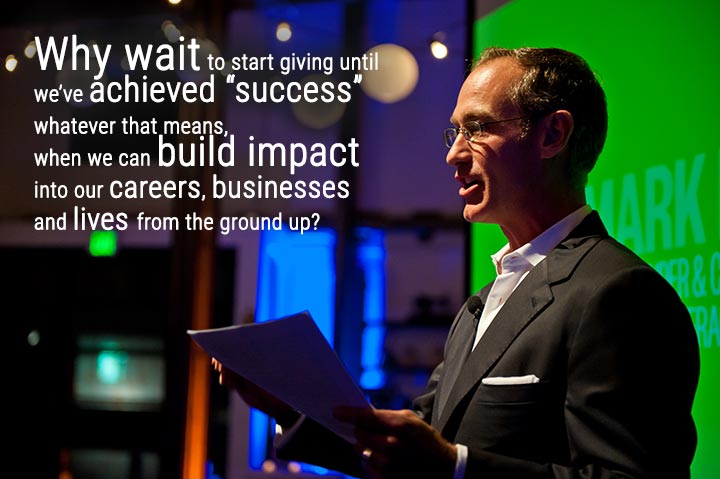
Fortunately, there’s a new breed of business people and philanthropists in our midst to inspire us and show us the way. That’s what Just Business and Not For Sale is all about and tonight I am honored and pleased to celebrate in this beautiful space the future of business. This is a new paradigm about how businesses can build impact into the very core of everything they do, led by these sort of change makers.
I ask you to be one of these change makers, and also to find them, support them, challenge them, invest in them, spread the word about them. The world of business may never be the same, and our children and grandchildren will thank us for it.
Thank you.
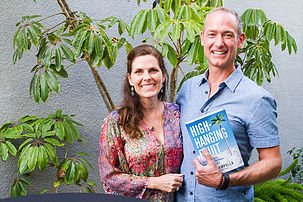
MAURA & MARK RAMPOLLA
Founders, ZICO Coconut Water
Mark and Maura Rampolla launched ZICO Beverages — the maker of ZICO Pure Premium Coconut Water — in 2004. The company grew rapidly, and Coca-Cola acquired the brand in 2013. Since leaving ZICO, Mark has become an active investor and adviser to social-impact businesses in the food, beverage, and technology industries. His venture fund Powerplant Ventures made a 2016 investment in REBBL. He also authored the book High-Hanging Fruit.

